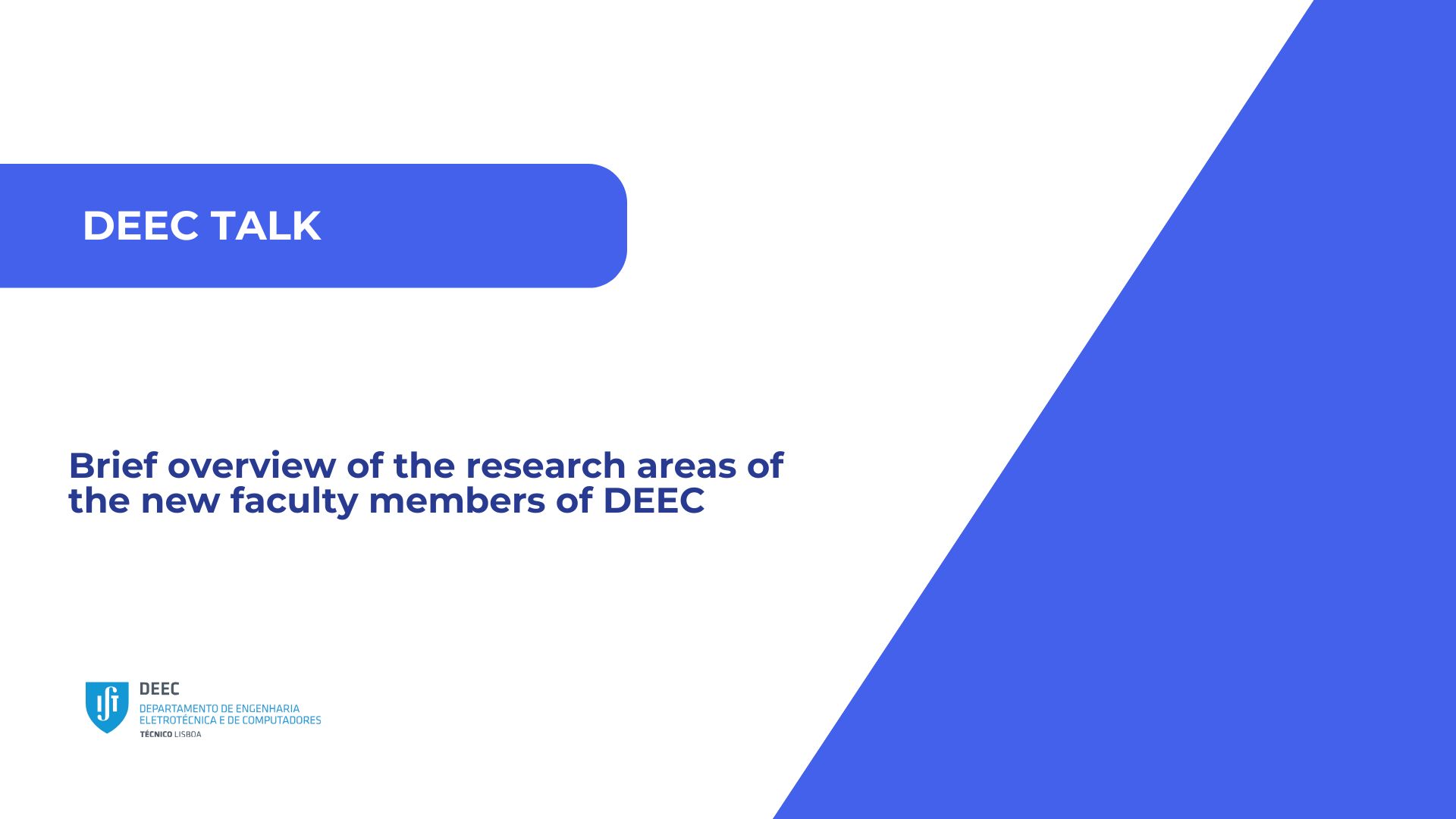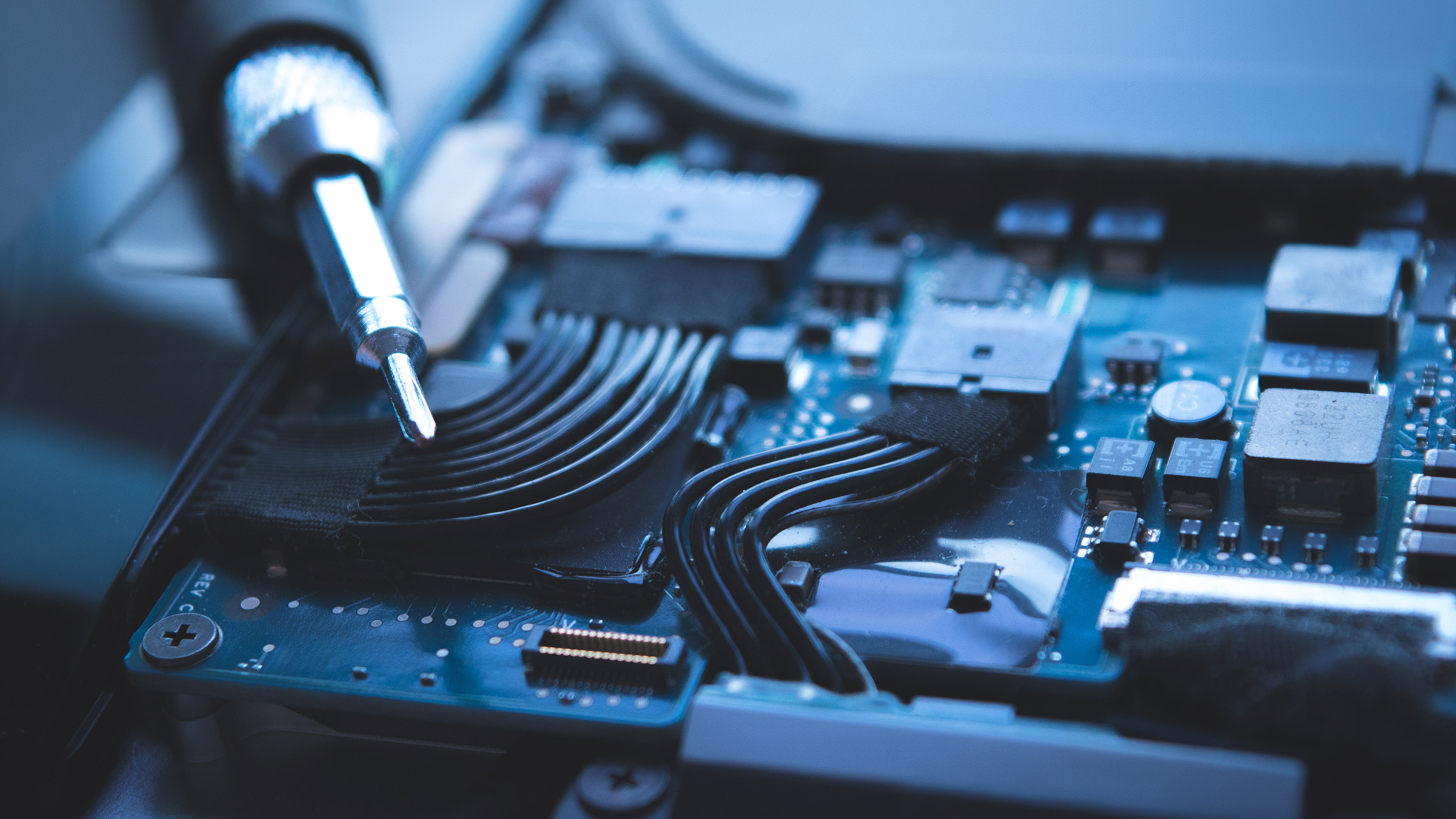DEEC TALK with João M. Felício, Emmanuel Cruzeiro and Guilherme Paim

On May 7th, at 12:29 PM in room EA5, a session will be held dedicated to the presentation and discussion of the latest research advances by Professors João M. Felício, Emmanuel Cruzeiro, and Guilherme Paim. Registration must be completed by April 30th through the following link: https://forms.gle/3hHm3EPdqmiVG3Xm6
The talk will be divided into three parts, covering the following topics:
TALK 1: Overview of microwave remote sensing for medical and environmental applications, by João M. Felício
João M. Felício obtained his PhD in IST in 2018. He was Assistant Professor at the Portuguese Naval Academy ("Escola Naval"), Almada, between 2020 and 2024, after which he joined DEEC as Assistant Professor, where he lectures the courses on antennas and propagation. He conducts his research at Instituto de Telecomunicações on antenna design for mm-wave and satellite communications, remote sensing and microwave imaging.
TALK 2: Foundations of quantum information theory, by Emmanuel Zambrini Cruzeiro
Emmanuel Zambrini Cruzeiro did his Ph.D. in the University of Geneva, on the spin dynamics of rare-earth ion-doped crystals and optical quantum memories. During his postdocs, he worked on a variety of fundamental scenarios in quantum information theory. Emmanuel is a researcher at Instituto de Telecomunicações, and assistant (auxiliary) professor in DEEC.
TALK 3: Title: RISC-V Chiplet-Based AI Acceleration: Enabling Flexible Edge and Cost-Efficient Supercomputers, by Guilherme Paim
Guilherme Paim is an Assistant Professor at the University of Lisbon, Instituto Superior Técnico, Portugal, a member of the Department of Electrical and Computer Engineering (DEEC), and an integrated researcher at INESC-ID. He also serves as a scientific advisor for companies in Silicon Valley and provides guidance on microelectronics and AI initiatives funded by the Brazilian Ministry of Science, Technology & Innovation (MCTI). Most recently, he co-authored the Brazilian Artificial Intelligence Plan, a $4 billion USD effort set to be launched this year.
Dr. Paim earned his Ph.D. degree (summa cum laude) in Microelectronics from UFRGS (Universidade Federal do Rio Grande do Sul), Brazil, in 2021. As part of his Ph.D., he conducted research at the Karlsruhe Institute of Technology (KIT), Germany, in collaboration with the University of Stuttgart (2019–2020). He received the 2022 Best Ph.D. Thesis Award from the Brazilian Microelectronics Society (SBMicro) and an Honorable Mention in the 2022 Ph.D. Thesis Award from CAPES, the Brazilian federal funding agency. Previously, he was a Postdoctoral Researcher at MICAS Labs, KU Leuven, Belgium, where he worked on artificial intelligence (AI) system-on-chip (SoC) design. He has contributed to several projects, including EU CONVOLVE, ERC BINGO, CAPES/FCT ML-DSIV, and CAPES/PROBRAL ReACT. Prof. Paim has authored or co-authored around 100 research papers in the field of Circuits & Systems. He has served on the Technical Program Committees (TPC) of ESSERC, ASP-DAC, DATE, EDGE AI Foundation, TinyML, and MLCAD. Additionally, he regularly serves as a reviewer for leading journals such as IEEE TCAS-I, TCAS-II, TCSVT, TVLSI, TPDS, TETC, TNSRE, and TBioCAS. His research interests include cross-layer AI hardware design space exploration (DSE), hardware accelerators, chiplets, and related topics
